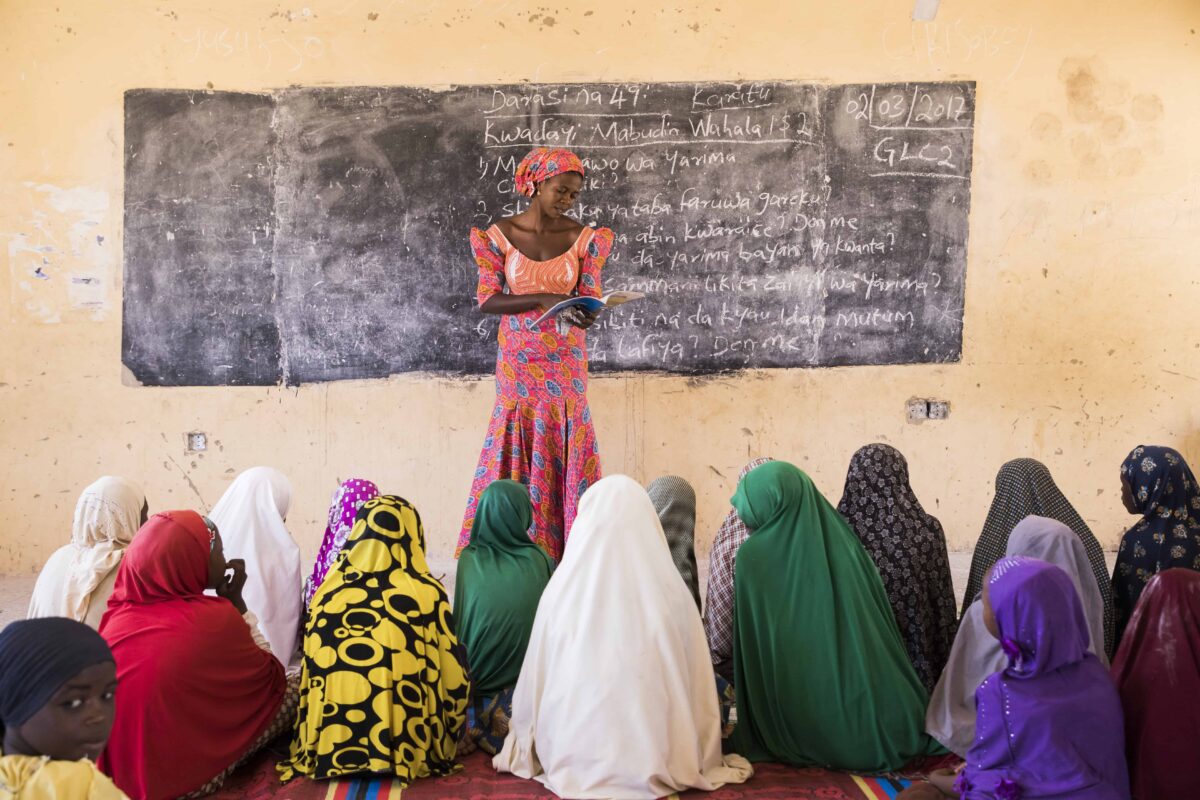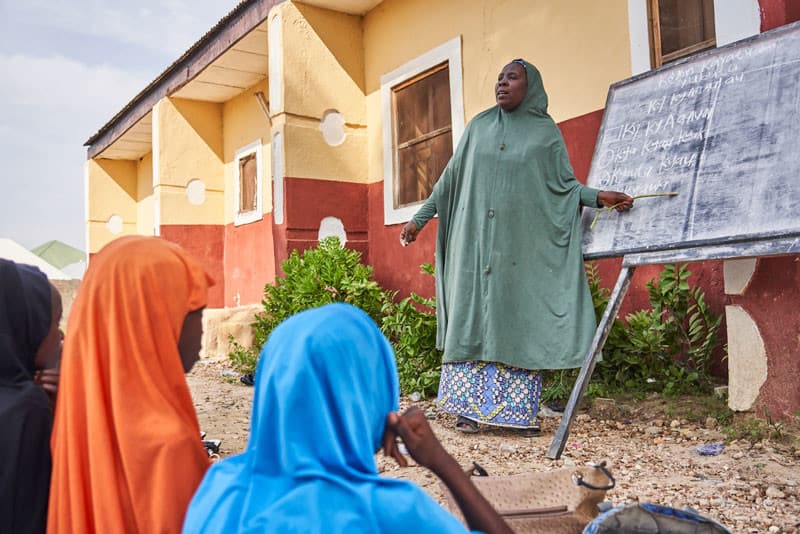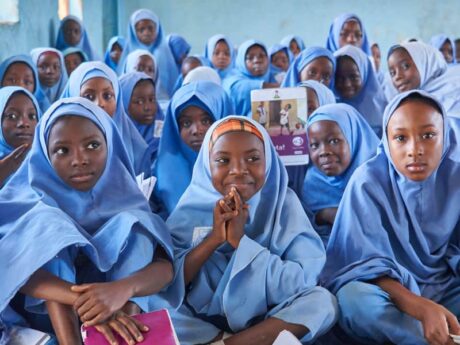Abuja, NigeriaNigeria’s Annual Education Conference brought together experts, advocates, international partners and policy implementers to discuss emerging issues affecting the quality of basic education in the country.
The conference – themed “Education for Self-Reliance” – included a panel highlighting work from the Northern Education Initiative Plus project, funded by U.S Agency for International Development and implemented by Creative Associates International and its partners.
The project seeks to improve reading skills for more than 1.4 million primary grade learners in Bauchi and Sokoto states, focusing on both formal and non-formal schools. It also works to expand access to education, a priority for USAID.
“We must ensure that every young person has access to education delivered in safe and nurtured environments. Strong partnership is key to long-lasting reforms in the education sector to create more dynamic citizens,” said Deputy Chief of Mission at the U.S Embassy David Young while addressing more than 400 education experts.
He said since 2014, USAID has invested $91 million to implement education interventions that support young people in Nigerian schools. According to him, “people must have confidence in and be proud of the public school system.”
To sustain USAID’s contributions to the education system, Young explained that the Northern Education Initiative Plus is supporting Nigeria’s government to develop a National Reading Framework that provides a blueprint for how children learn to read.
The project builds children’s literacy in Hausa in first grade and ultimately transition to full English instruction in fourth grade. It has trained 1,350 teachers and distributed more than two million textbooks – helping to improve reading skills for about 500,000 children to date.
Strengthening government systems
The conference, which was hosted by the Federal Ministry of Education, included a session on systematic approaches to funding, accountability and autonomy as enablers of an improved learning outcomes.
Olakunle Odumosu, a technical consultant with the Northern Education Initiative Plus, presented on the State Education Account, a tool used to demonstrate resource allocation and utilization in the education sector and implemented by the Northern Education Initiative Plus. He noted that the tool allowed state governments to access consolidated data on its education spending, which is then used for effective decision making.
The Northern Education Initiative Plus utilized the State Education Account tool twice. States then used the findings to develop a medium-term sector strategy, prioritized funding for basic education, and included the process in its annual budget as part of its mechanism for demonstrating transparency in education financing.
“The State Education Account report now belongs to the states and they have used it as justification to prioritize funding for inputs in school systems that lead to improved learning outcomes such as teaching and learning materials,” Odumosu said.
Systems Strengthening Specialist for the Northern Education Initiative Plus Musa Salami gave recommendations for sustainability and accountability in education using best practices from the project.
Such practices included conducting an institutional capacity assessment of ministries, departments and agencies of education, supporting local government education authorities to develop capacity building plans using results of the assessment, and encouraging community participation in education.
He said these had resulted in institutionalizing major activities of the project such as printing and distributing reading textbooks, school monitoring and supervision and teacher professional development.



